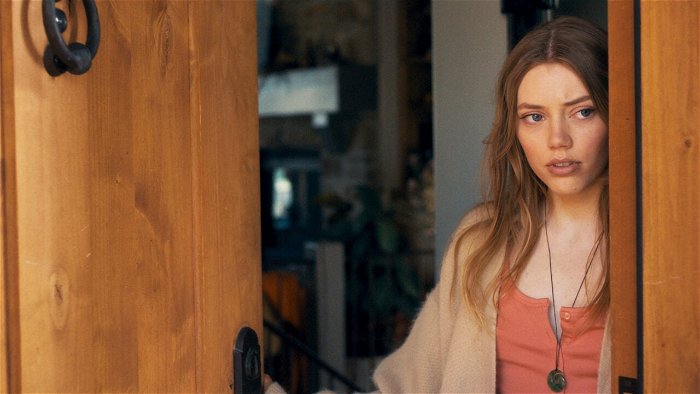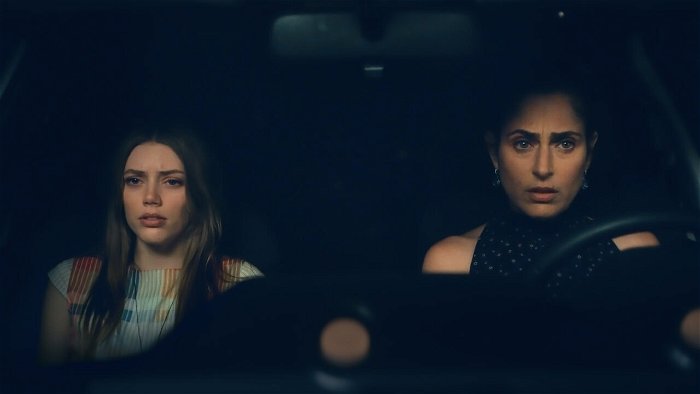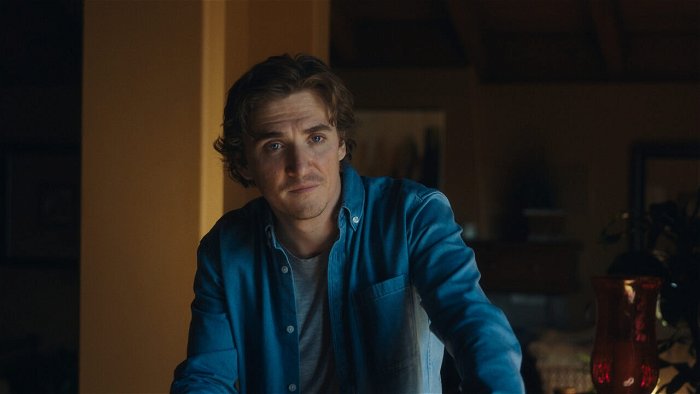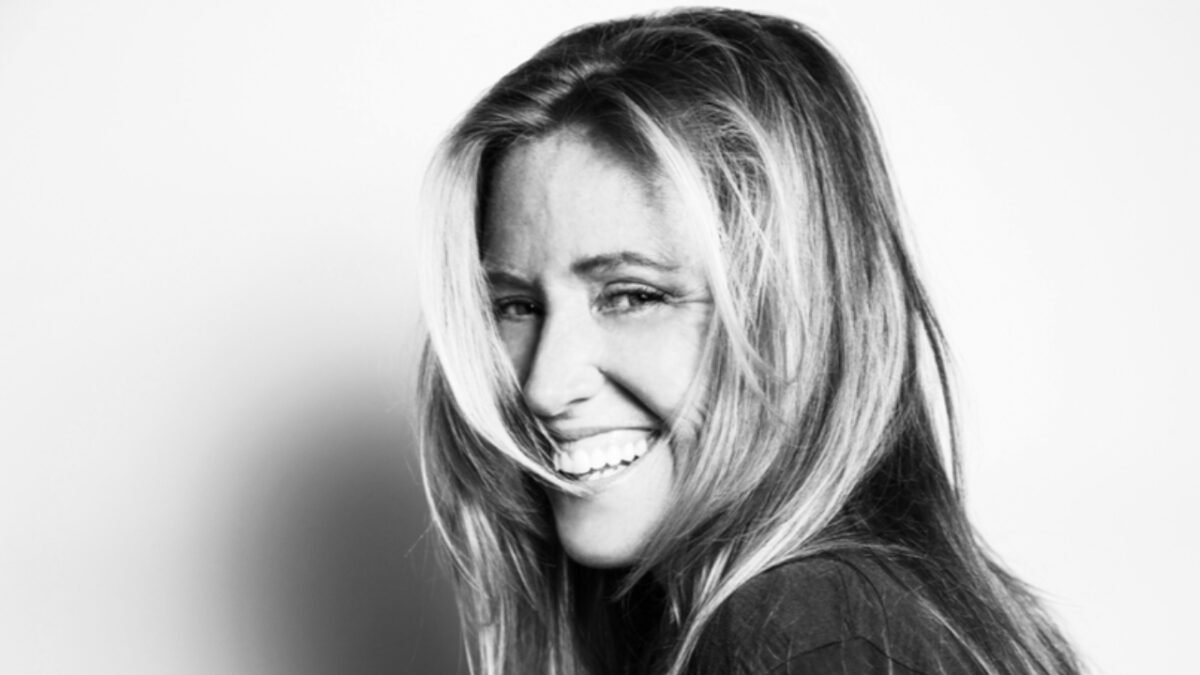Premiering at TIFF 2022, Roost is the story of a young girl who finds herself intertwined with a much older man. What once seemed like innocent teen love, quickly devolves into something much more complex, with an exploration of generational trauma and the dangers of gaslighting someone, this is a movie that is as tense as it is introspective.
With Roost playing at the festival, Amy Redford was kind enough to sit down with CGMagazine to discuss the themes of the film, the process and the many concepts that need to be considered when bringing this story to the screen. Having worked on a series of projects as both director and actor, her credits include The Guitar (2008) as director, and many screen credits on such series as Law & Order: Special Victims Unit, and The Sopranos. Her love of the craft and empathy for the stories she tells made her a joy to talk to, and helped see the many complexities waiting to be discovered in Roost.

CGMagazine: Were you excited to see Roost as part of TIFF 2022?
Amy Redford: It’s so thrilling. It’s kind of beyond comprehension. I mean I love the city. I have had the good fortune to see a bunch of really great films, but it’s also being in community with the Toronto folks and their enthusiasm and smarts and their questions and insights. So I love this festival; it’s just a great festival with such a mix of content and perspectives. I’m so excited about that, and just being in the city and seeing people is just like a rush of adrenaline to be able to be together and having this experience. It’s been great so far.
CGMagazine: Could you tell us a bit how Roost made it into this year’s festival?
Amy Redford: Yes, we submitted, they selected us. I got a letter from Cameron Bailey saying that they thought it was a great fit. It’s such an incredible honour to be here included with all of these other films.
CGMagazine: You had a great cast that fit their roles well, how did you pick everyone? Did you have a list in mind for Roost?
Amy Redford: I was so lucky. I have a great casting director. But, before that happens, it’s the faith of my executive producers and producers to allow me to cast my first choice actors, which doesn’t always happen. So I was able to not only go after my first choice actors, but also do chemistry reads, and Kyle Gellner generously would read on camera. Those reads functioned almost as a bit of a rehearsal.
A lot of times, especially when you’re making films on a budget, you’re not even allowed to do that, because you’re trying to hit some kind of fairly arbitrary target with the value of your actors, but when you’re actually allowed to cast the actors that are perfect for the roles and want the roles it’s a total gift. That’s really a testament to my producers.

CGMagazine: Roost is interesting because it does have a romantic feel early on, and that quickly shifts as it moves into being a thriller. Was that intentional?
Amy Redford: When we first started talking about this film, we were talking about genre, and I was like, look, in the course of one day of my life, I probably go through about 17 different genres. And I think the most important thing about that is when we are in a certain genre to be true to it. Also, we need to remember to not get ahead of it because that is a way for us not to get ahead of the story. Also, I think, it is a more honest reflection of the human experience to have it more natural in the way the story progresses with the genre.
So of course, early on it is, the sort of blushing unabashed teen love with the optimism and enthusiasm that comes with that. Halfway through, we had a pretty intense pivot point. Luckily, I was able to really lean on Scott Oregon’s writing, because he’s so crafted to be able to take us from moment to moment. I also need to thank the rest of the team, making movies is not a solitary art. I just am so grateful to everyone that was on point of the film.
CGMagazine: Now you’ve acted, and you direct, do you find playing between those two roles gives you a different take on how to take on a project?
Amy Redford: Absolutely, I mean, it’s sort of how I decide whether to take on a directing project: I put on my actor hat, and if I want to play every role in the movie, then I think we have something to do here. It’s important, no matter how big or small, each of the characters has to have a reason why they exist. So I also really believe in the wisdom of actors: you can see when an actor who is invested in their character is struggling with a moment, and you realize that the moment is probably not reflecting the truth. It’s better to go talk to the actor about why they’re struggling.
CGMagazine: There’s a really complex sense of morality going on in Roost. How did you balance this morality with the story being told?
Amy Redford: I think we’re living in a very polarized world where it’s very easy for us to demonize another person without fully understanding where they’ve come from and what they’ve been through. My deepest hope is that people have discussions after the film, and that it sort of cultivates and percolates ideas, and brings a slightly different framing to somebody who we might have been able to sit back and throw grenades at out of a bunker instead of coming out and saying, Hmm, I wonder how that person got to that place? I think the gaslighting of other humans is probably the worst thing you can do to somebody, and it causes all kinds of downstream effects.
Part of this is understanding what generational trauma is and where that starts. For me, as a mom, the idea that I could do something in my youth that I didn’t own that could fall out on the shoulders of my children is the horror part of the genre. I don’t fall on one side of the other; I fall on the side of discussion and discourse and understanding so that maybe we can start to find each other in this sea of judgment, and create compassion.

CGMagazine: I noticed that you had numerous scenes of Eric in the car on the road. What was the reason for that, and how do you think that plays into Roost as a whole?
Amy Redford: I didn’t have to do too much to make him look good. Kyle Gallner is an incredibly complex actor. He is so hardworking, so smart and so possessive over the holistic nature of his character, and I think, for us, we see her on the phone with a guy that’s obviously older than her. And immediately our fear reflex kicks in.
I think it was important to humanize him to understand that he was going a distance and to understand that he was also in a moral crisis. I think part of that was to articulate that he was also very alone. When you are a person who is not being heard or seen, it becomes a way of being a solitary life, and that is part of why we wanted to show him alone and on that journey in Roost.
CGMagazine: There’s a lot going on in Roost. Is there anything you want the viewer to take away that may help form the overall story?
Amy Redford: Back to this idea of staying present in each moment, as it occurs, I think that it is easy for us to throw judgment. And I think if we back up and ask what is the downstream effect of actions and what’s the antidote to hate and distressed, I just don’t think it’s ever too late to recognize and acknowledge those things. Because we’re all human beings. We’re all fallible, we’re all capable of making self-interested choices. So, I’m at an age now, where I’m looking over my shoulder asking if there is something that I can do to propel forward the freedom of another person, whether it’s emotionally or theoretically.




